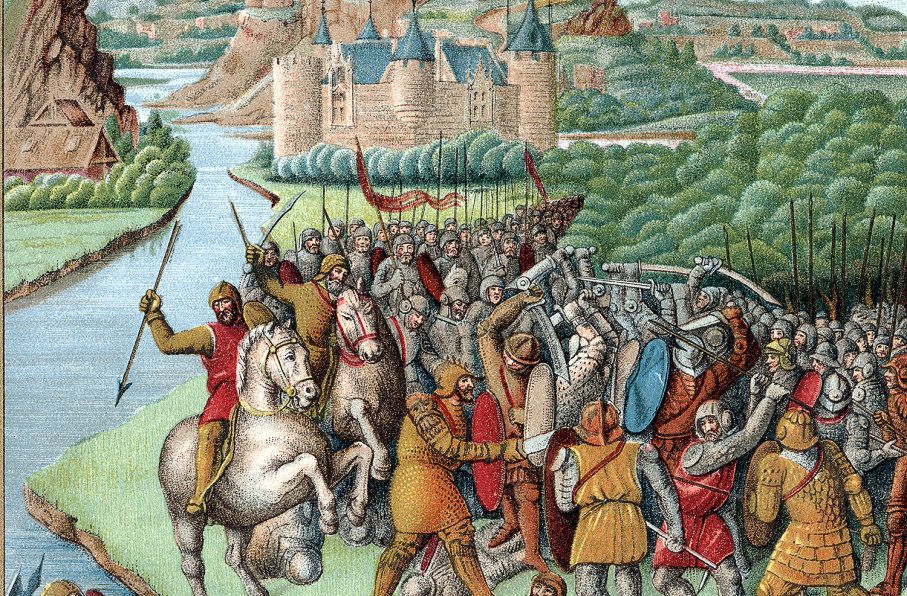
Maccabean Revolt
PalestineThe Maccabean Revolt was a Jewish rebellion led by the Maccabees against the Seleucid Empire and against Hellenistic influence on Jewish life. The main phase of the revolt lasted from 167–160 BCE and ended with the Seleucids in control of Judea, but conflict between the Maccabees, Hellenized Jews, and the Seleucids continued until 134 BCE, with the Maccabees eventually attaining independence.
Seleucid King Antiochus IV Epiphanes launched a massive campaign of repression against the Jewish religion in 168 BCE. The reason he did so is not entirely clear, but it seems to have been related to the King mistaking an internal conflict among the Jewish priesthood as a full-scale rebellion. Jewish practices were banned, Jerusalem was placed under direct Seleucid control, and the Second Temple in Jerusalem was made the site of a syncretic Pagan-Jewish cult. This repression triggered exactly the revolt that Antiochus IV had feared, with a group of Jewish fighters led by Judas Maccabeus (Judah Maccabee) and his family rebelling in 167 BCE and seeking independence.
The rebellion started as a guerrilla movement in the Judean countryside, raiding towns and terrorizing Greek officials far from direct Seleucid control, but it eventually developed a proper army capable of attacking the fortified Seleucid cities. In 164 BCE, the Maccabees captured Jerusalem, a significant early victory. The subsequent cleansing of the temple and rededication of the altar on 25 Kislev is the source of the festival of Hanukkah. The Seleucids eventually relented and unbanned Judaism, but the more radical Maccabees, not content with merely reestablishing Jewish practices under Seleucid rule, continued to fight, pushing for a more direct break with the Seleucids. Eventually, internal division among the Seleucids and problems elsewhere in their empire would give the Maccabees their chance for proper independence. An alliance with the Roman Republic helped guarantee their independence.
